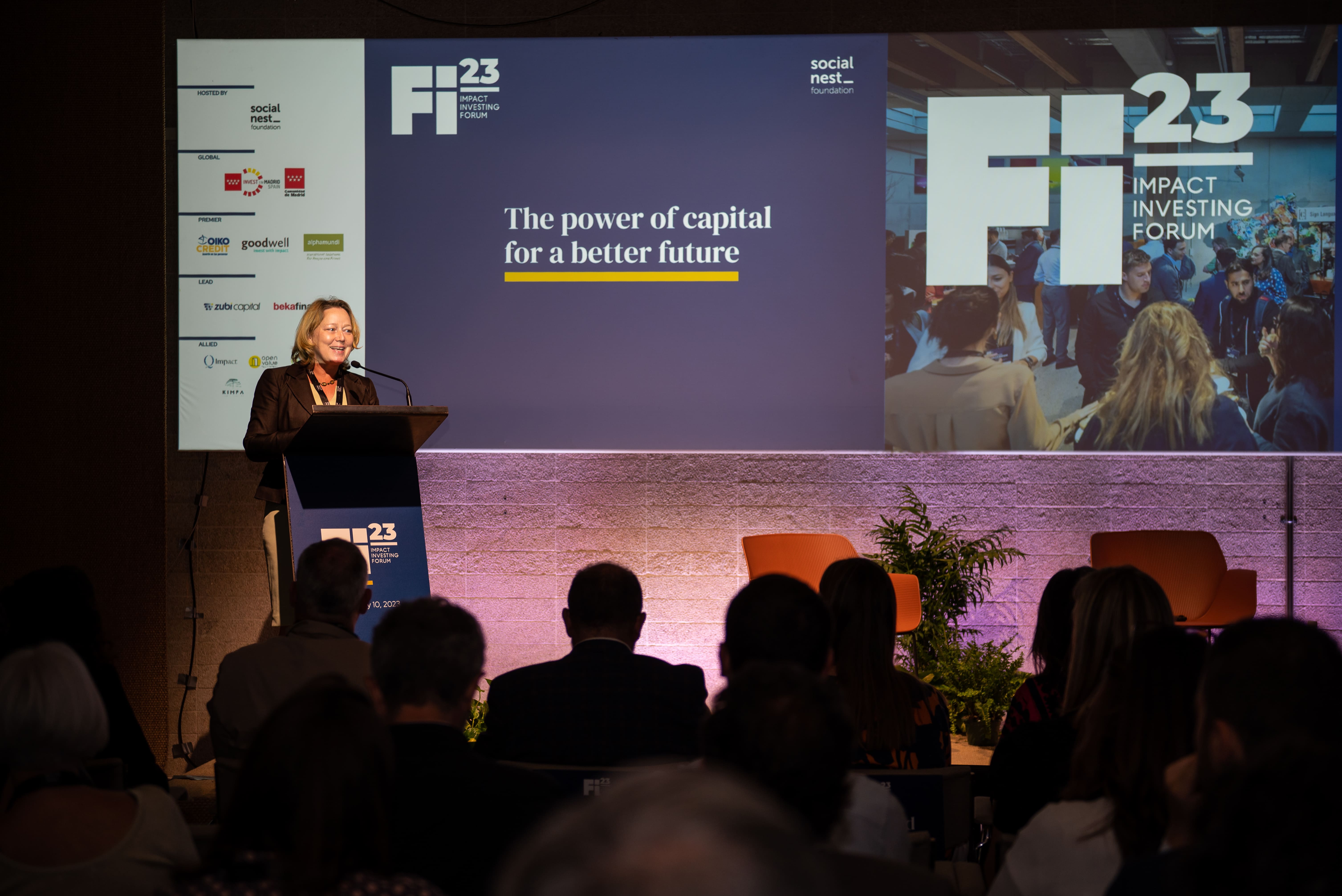
The power of impact investing: Takeaways from Fi Forum 2023
By Monica Vasquez, Head of Strategy and Impact at Social Nest Foundation
During the Fi Forum 2023, the Director of the UNDP Representative Office, Agi Veres, pointed out that investing that addresses sustainable development goals is happening but not at the scale needed. The overall funding gap for achieving Sustainable Development Goals increased from USD 2.5tn to USD 4.2tn post-Covid-19. However, the problem is not for any lack of money, as she mentioned: shifting 1% of global financial assets would be enough to close the financing gap in developing countries.
In this regard, the financial industry clearly plays a huge role. The question, then, is how to bring on board wealth advisors, family offices, institutional investors and banks. According to the speakers at our Fi Forum 2023, explaining the basics of Impact Investing and how it has evolved as a type of sustainable investing is absolutely crucial. Many decision-makers in the financial industry still hold limited knowledge about Impact Investing and need to understand the main concepts, in addition to getting information on key market data points of the impact investing sector. As we learned at one of the sessions of our Fi Forum 2023, “it is important to start talking in their language and explain some of the key benefits of Impact Investing in the financial terms of strategic asset allocation, portfolio optimization, low volatility and low asset correlation”.
For this reason, we at Social Nest Foundation are convinced that in order to accelerate the mobilization of capital towards impact, it is important to inspire, educate, and connect asset owners and asset managers in the understanding that we are all part of one system. As our president Margarita Albors stated: “Over the years, I have come to see impact investing and the impact industry as similar to human chains formed by hundreds of people standing side by side passing, for example, a bucket of water. Impact investing industry should be like that chain, with many actors collaborating, standing side by side, and shoulder to shoulder with the aim of solving the biggest social and environmental challenges of our time”.
But, what does it mean to work as a part of a system? According to our panelists at Fi Forum 2023, not only should impact investing be driven by the symptoms of our current system, it should also attempt to address the roots and causes of social and environmental problems. Investing with a systemic approach also implies engaging with stakeholders across various sectors, including government, civil society, and the private sector, to create sustainable solutions. It requires collaboration, innovation, and a long-term perspective for achieving lasting impact.
Collaboration between the public and private sectors is especially needed, in the sense that public capital should play the role of de-risking allocation capital from private investors in blended-finance structures driven by social and environmental impact. On that account, philanthropic capital can also have a role as a part of blended finance structures, not only de-risking investment for traditional investors but also mobilizing new flows of resources, in particular by catalyzing innovation, encouraging pivoting, supporting experiments and failures if necessary.
As Roberta Bosurgi, CEO of EVPA mentioned, it is not a matter of HOW MUCH money has been deployed, it is more about HOW that money is getting invested. That is why innovative finance strategies are needed, to design the more appropriate structures and financial instruments that would make more effective use of financial resources by putting finance at the service of impact.
It is also about WHERE to invest: in 2020 emerging and frontier economies held less than 20% of global financial assets but represented 84% of the world’s population and 58% of global GDP. Speakers from our sessions focused on Latin America and Africa, encouraging investors to allocate more capital to those regions because they are not only the current and future suppliers of natural resources and young talent, they are also getting further away from northern countries by the day.
In that regard, the narrative that claims there are only a few impact investment possibilities available in those areas and the investment risks are too high must be corrected. The experiences presented from diverse asset managers in our Fi Forum 2023 (Gawa Capital, Alphamundi, Inox Capital, MCE Social Capital, Global Social Investments, Good Well, Oikocredit, Blue Like and Orange) proved these are misconceptions, while at the same time showed the key benefits of investing for impact in Latin America and Africa.
This edition of the Fi Forum taught us a lot and made important calls to action, from allocating more capital towards impact (10% of AuM allocated to impact investing) in a way that is more effective and in the places where it is most needed, to seeing us all as part of one system that should work in a disruptive and synergetic way, putting impact -and especially impact management-at the core of the economy.
But most importantly, there is the call to understand that the financial industry talks about numbers all the time, but what impact investing should emphasize is the narrative that, at the end of the day, investing is also about people.


